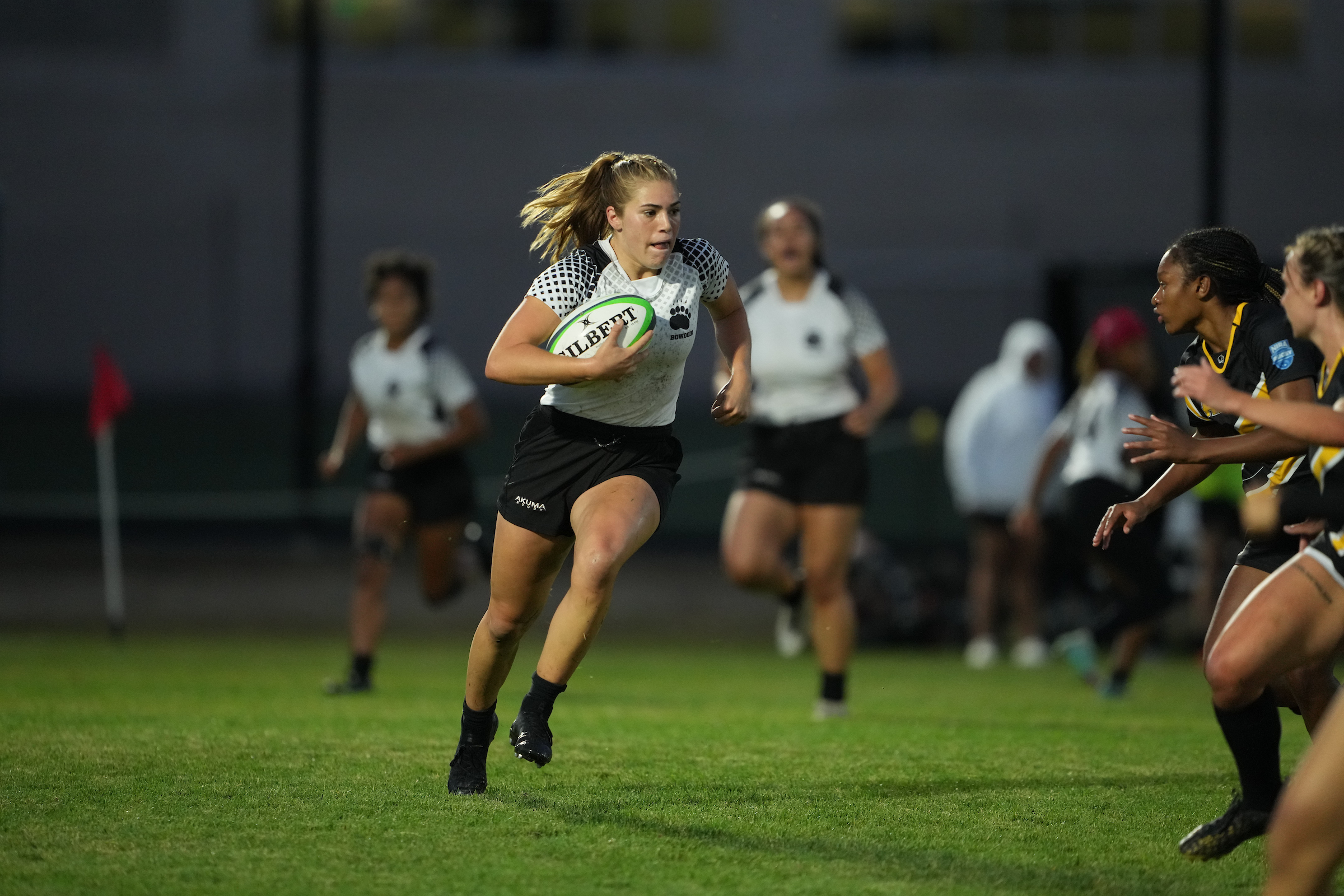Women’s rugby dominates over UNE
October 31, 2024
 Courtsey of Brian Beard
Courtsey of Brian BeardLast Friday, the women’s rugby team (3–2) secured a 99–0 win against the University of New England in Maine (UNE) (1–2) in a strong, cohesive effort between the team’s forwards and backs. The gameplay executed during the UNE game was the culmination of new tactics and skills learned over the past season as the team faced more difficult teams than it had in past seasons.
Lulu Linkas ’26, a back on the team, explained that since the Polar Bears had not played UNE since last year, they did not know what to expect from the game—especially since the team has been playing more DI and DII opponents this season.
“I think a lot of what we were working on for the last few weeks came together. It was probably able to be that way because we were playing somebody in our own conference, rather than the DI or DII teams that we’ve been playing. But I also think after all the games from earlier in the season, we took away a lot,” Linkas said.
Nisi Tuitupou ’26 was happy with how the match went.
“I think the team played really well,” Tuitupou said. “We wanted this game to set a tone and to be the game that we want to look back at and be proud of. I think that’s what we did.”
The rugby team has been focusing on developing defense strategies, working as a cohesive unit and having a structured offense. Successfully implementing a disciplined offense was particularly important for the team, as it helped the players stick to what they knew during a game, but also adapt when plays did not go to plan.
“We were executing our [structured] plays really well, but when we needed to, when their defense was leaving an opening or when we saw that there was an opportunity to take advantage of, we weren’t afraid to break out our play,” Linkas said.
From a more technical aspect, the team felt that it executed its gameplay well.
“I think our catch-pass was really good. We didn’t drop the ball as much, which is important, because if you drop the ball, it’s a knock on, and that’s a penalty,” Tuitupou said. “There was good communication between the forwards and the backs, because sometimes they can seem separate, but when they work together, it really helps.”
For some players on the team, the key to the game was setting the tone at the beginning, which forward Ginger Arnold ’27 did by making a break at the very start of the game.
“[Arnold] took advantage of taking a line break and then having a really strong leg drive and carrying [the ball] to the line…. They set the tone for the rest of the game that, ‘We know what we’re doing. We’re going to do what we came here to do and play really good rugby and just perform at a high level,’” Linkas said.
Reflecting on the season, Linkas noted that fewer DIII school competitions being in the schedule than normal led the College to play more friendly matches against DI and DII teams. Though the College lost by up to 50-point margins in some games against DI or DII teams such as Dartmouth College (6–0) or American International College (AIC) (4–2) , the Polar Bears were still able to beat other teams in the DIII bracket by that same margin if not more.
“What we took away from this season is that we have the ability to play at a higher level, at a DI level,” Linkas said. “But it highlights the fact that DIII needs to be built up a little bit more. We as a team proved to ourselves that we could beat or not lose by a huge point differential to really good teams in the higher brackets. So that was really good, and it gives us something to work for.”
Because of the mix of recruited and non-recruited players, one of the team’s main focuses this season was to be a cohesive unit. The Polar Bears also wanted to focus on developing rugby-specific skills.
“I think the beauty of the game is that everyone learns how to play, and then, each season or each year, you have to learn how to become a new team and work really well together,” Tuitupou said. “Tackling, that’s been another big [focus] of the team, and decision making, because we played a lot of harder teams this season. We also say [we want to focus on] intensity in practice … just making sure that we have the mindset to play before we even play.”
The upcoming spring developmental season will be an exciting time, as the team plays a seven-player variation instead of the usual fifteen-player lineup, which will allow players to play more minutes and practice different skills.
“In sevens, there’s no real distinction between forwards and backs,” Tuitupou said. “It’s a lot more running, the same thing with seven-on-seven football. We’ll focus a lot more on individual training and really just getting our fitness up.”

Comments
Before submitting a comment, please review our comment policy. Some key points from the policy: